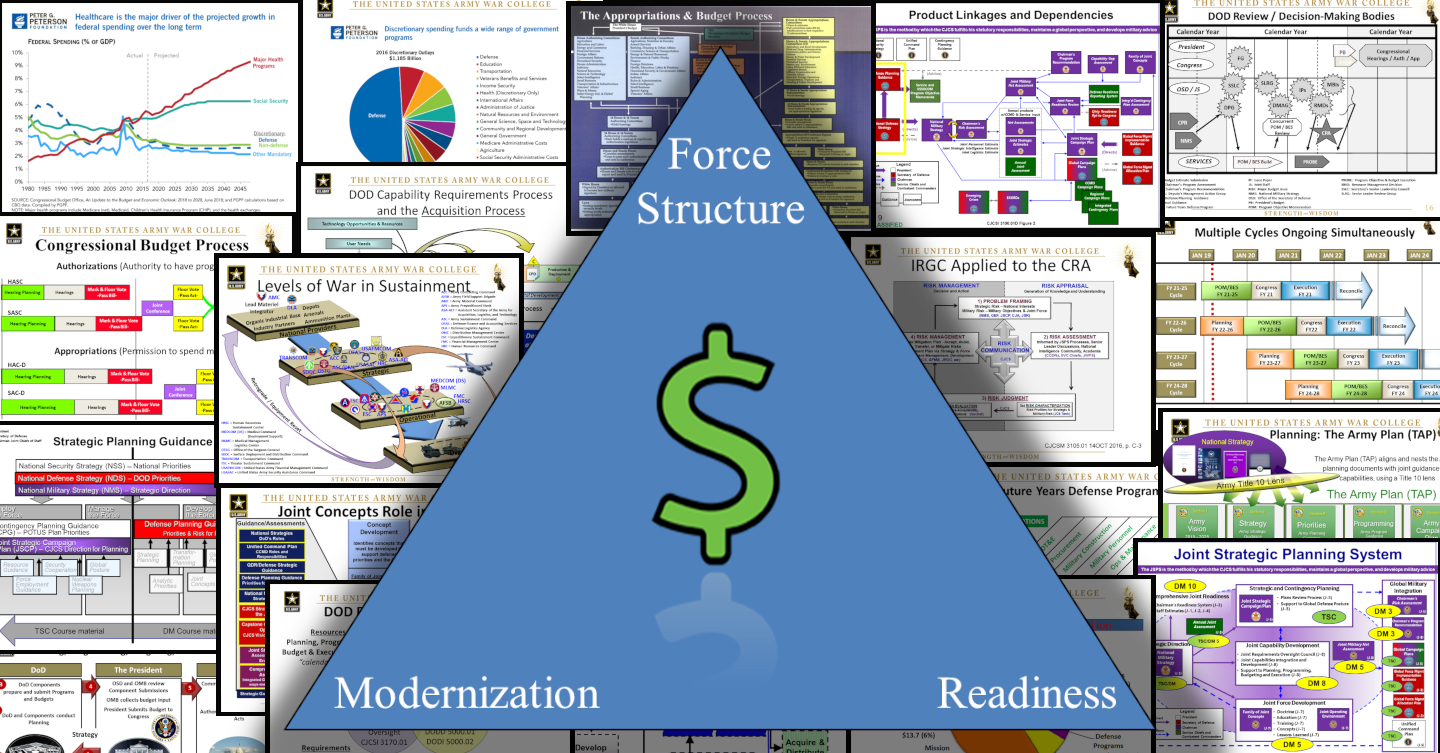
It has been recognized since antiquity that victory in war often goes to those who best organize “the sinews of war” (money, equipment, and supplies). Yet at the U.S. Army War College the Defense Management course that teaches these topics has often been maligned. For a time, a heavy focus on acronym-heavy process caused many students to roll their eyes and ask, “Why do I have to learn this? I’m not a force manager, or budgeteer, or program manager etc.”
Tom Galvin and Doug Waters are in the studio to explain how the course is evolving to better demonstrate why everybody needs a little Defense Management in their lives. In one of the final components of the core curriculum, War College students get a healthy dose of the other strategic triad — force structure, readiness, and modernization. Galvin and Waters join podcast editor Ron Granieri to discuss how this course is changing and why everybody needs to just eat their academic spinach because the students are going to “speak defense management” in their coming assignments.
The previous course director…did some research into what colonels do when they leave, it was almost a thousand different colonel billets post war college…and he found that 70% of them were in systems and processes type billets and about 15 to 20% of them were down in the DC area. So it’s something that we know that our students are going to be involved in the question is how do we approach it because most of our students have not worked in this arena.
Podcast: Download
Tom Galvin is Associate Professor of Resource Management in the Department of Command Leadership and Management (DCLM) as well as the leadership and management instructor for the Carlisle Scholars Program. at the United States Army War College. He is the author of the monograph Leading Change in Military Organizations and companion Experiential Activity Book.
Douglas Waters is currently the Associate Professor of Department of Defense Systems, Department of Command, Leadership and Management (DCLM), U.S. Army War College, where he teaches courses in Strategic Leadership, Defense Management, and Joint Issues in Defense Management. He is a retired Navy Captain with Pentagon tours on both the Joint Staff as a Strategic Planner and the Navy Staff as a Congressional Analyst working Navy Program and Budget issues. His degrees include a Bachelor of Arts in Psychology from Duke University, and a Master’s Degree in National Security and Strategic Studies from the US Naval War College.
Ron Granieri is an Associate Professor of History at the U.S. Army War College and the Editor of A BETTER PEACE.
The views expressed in this presentation are those of the speakers and do not necessarily reflect those of the U.S. Army War College, U.S. Army, or Department of Defense.
Photo Description: A small sampling of Defense Management materials from previous lessons that all support the basic triad of Force Structure, Modernization and Readiness that must be carefully and continuously balanced.
Photo Credit: Department of Command Leadership and Management, U.S. Army War College




